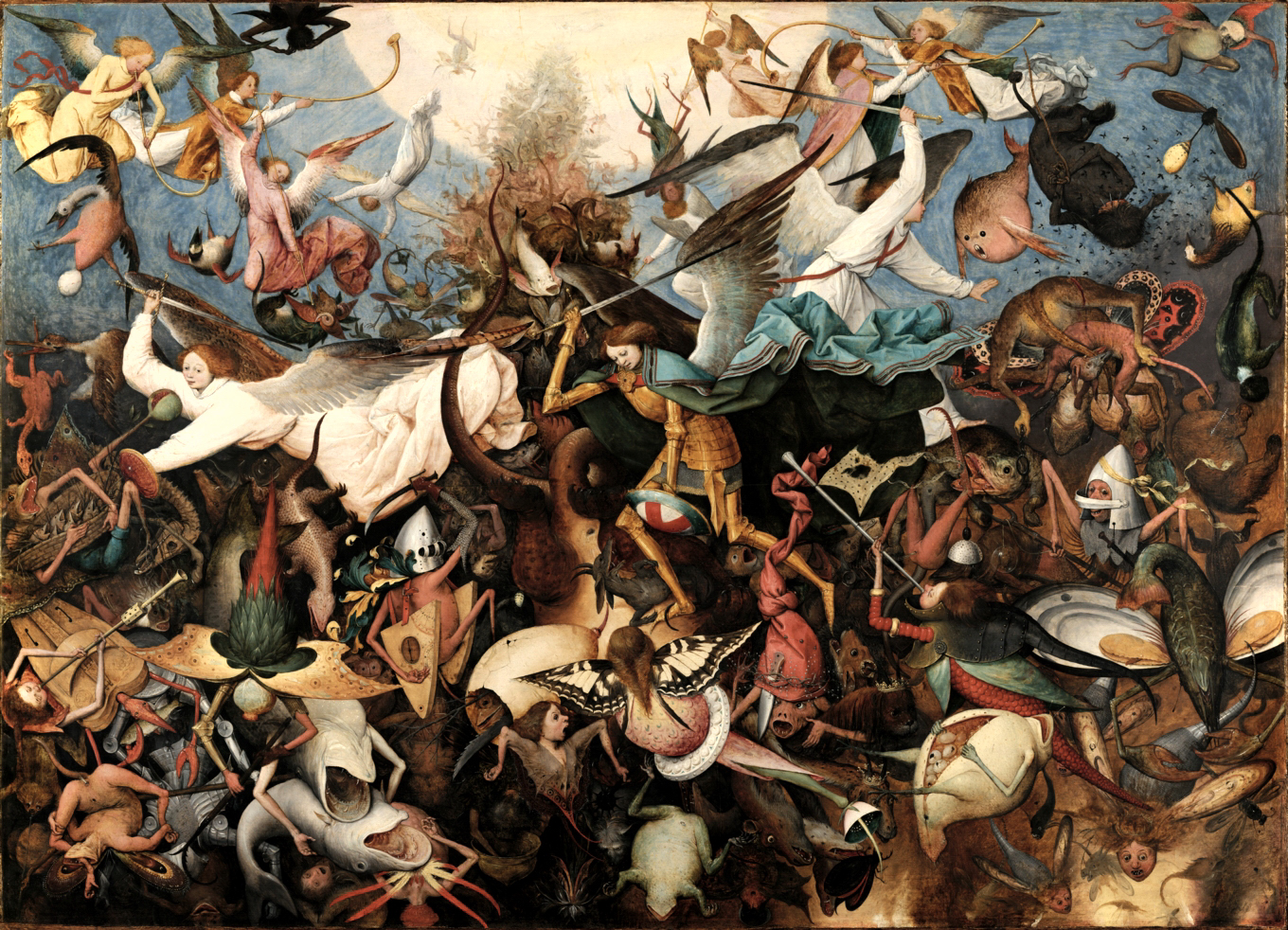Actualiteit
Interview with Natalia Petrovskaia!
Dr. Natalia Petrovskaia has been working at Utrecht University for several years and has been HHP domain coordinator of History and Art History since 2022. Here, she is constantly developing the programme, the students and herself. Natalia is a true medievalist and is working on several projects to further immerse herself in that era. Her deep dive has even proved connections to The Mandalorian! In light of her enthusiasm for the Honours Programme, her research and her teaching, we interviewed her for the blog. In this interview, Natalia shares her (personal) projects and passions within and outside of the Humanities Honours Programme. Enjoy!
and has been HHP domain coordinator of History and Art History since 2022. Here, she is constantly developing the programme, the students and herself. Natalia is a true medievalist and is working on several projects to further immerse herself in that era. Her deep dive has even proved connections to The Mandalorian! In light of her enthusiasm for the Honours Programme, her research and her teaching, we interviewed her for the blog. In this interview, Natalia shares her (personal) projects and passions within and outside of the Humanities Honours Programme. Enjoy!
- Can you introduce yourself briefly?
I am an Assistant Professor in Celtic, at the Department of Languages, Literature and Communication at Utrecht University. I’m also a board member at the Centre of Medieval Studies here at UU. I got my BA, MPhil and PhD degrees at the University of Cambridge, department of Anglo-Saxon, Norse and Celtic, so I’m a medievalist by training.
- How long have you been involved in the Honours programme and why did you want to become part of the HHP?
I’ve been formally involved in the programme since September 2022, as domain coordinator for the Languages, Literature and Communications domain. I think I first taught some individual tutorials back in 2021. The ‘when’ is a blur but I remember the essays vividly – they were supremely interesting! I think that’s how that conversation started.
- How do you personally fulfil your role as a domain coordinator?
I am in the process of figuring that out. One thing I’ve discovered is that it’s a little like a mirror version of the student experience of honours – it allows for so much flexibility you have to not so much grow into it as allow it to allow you to grow, and mould it around you. But on a more concrete note: I fulfill a tutor (=guide) function for the students in my domain. I talk to students individually about their progress, particularly in the portfolio conversations but also at various points throughout the year. (My door is pretty much always open, by the way – just drop me an email to make sure I’m in the office and come by for a chat!) I’m the one who approves the final portfolio. I also organise meetings for peer feedback for students writing theses in my domain. Sometimes I advise on applications to MA programmes. Sometimes I write letters of recommendation for MA programme applications for students of my domain. Next year I will also start organising my own ‘portfolio’ activities.
- What do you like most about being involved in the Honours programme?
There is so much that could be said in response to this question! The community. The flexibility. The conversations. I think the best thing about it is that it’s constantly evolving. It’s never boring!
- If you could organise your own portfolio activity, what would it be?
As I said above, that’s exactly what I plan to do next year! This year I took part in the Honours Teaching Programme, and I had I think of an ‘intervention’ – a way to improve honours. Ideally, I would like to create pathways to facilitate formal connections between different honours programmes. The biggest challenges will be administrative, and it’s worth doing only if what I create actually answers a need. Therefore, I’ll be calling on HHP students to join me in thinking, and talking, about what you as students want. (Once we figure that out, I’ll then try to figure out if it’s actually possible to implement, and how!) I will try and organise something a little more fun as well.
- Do you have a vision for education?
Good question! I think I am supposed to have one of those. I’ve been busy this year during the training course trying to (re?-)discover what it is. Thought of the moment: education evolves and it’s probably best not to be too dogmatic about one’s vision. Maybe. I reserve the right to evolve beyond that point of view…!
- What is the most enjoyable course you have ever taught?
The ‘Literature Seminar’ for the Celtic BA programme. It’s a part of the specialisation in interpreting literary texts, and only takes place on alternate years, but it’s lots of fun. We take a theoretical framework (for the past couple iterations it’s been ‘landscape and spatiality’, because I’ve been working with that a lot myself recently) and apply it to medieval Irish and Welsh texts. Co-teaching on a course can also be lots of fun (and I absolutely love it), but there’s just something very special in creating a course that completely your own and reflects your research interests.
- Do you have any projects —personal or academic— you have been working on or interesting topics that you have been looking into recently?
I’m juggling a couple different projects at the moment. One of them is a book on the medieval Western European geographical ideas of ‘Europe’, which will be coming out with Amsterdam University Press early next year hopefully. My other research interest is medieval literature and its transmission and evolution, and I recently published a book about the Welsh version of the ‘grail’ story. (Here’s my blog entry about that on the University of Wales Press website: https://www.uwp.co.uk/is-this-not-a-grail-romance/ )
I also sometimes write this kind of thing: https://kelten.vanhamel.nl/k88-2021-petrovskaia-excalibur-zwaard-mandalorian, so it’s not all medieval!
- Tea or coffee? If so, which flavour/sort is your favourite?
Coffee. Coffee. Coffee.
Cappuccino in the morning, espresso after noon.
- Who’s your favourite historical or literary figure?
Peredur! (The Welsh version of Perceval, the ‘grail hero’.)
- Where would you most like to live?
Have you seen the 1964 film ‘My Fair Lady’? A house with a library like Professor Higgins’s, but in Utrecht.
- Do you have any pets?
Do pet (book) projects count?
- Can you give us two truths and one lie about yourself?
My favourite book of the moment is John Cleese’s “Creativity”.
I’m a trekkie.
I do not drink coffee.

